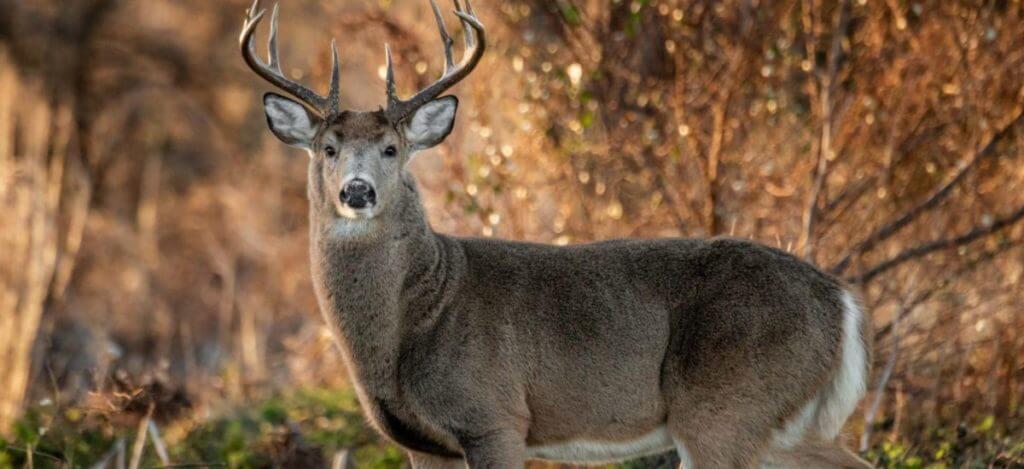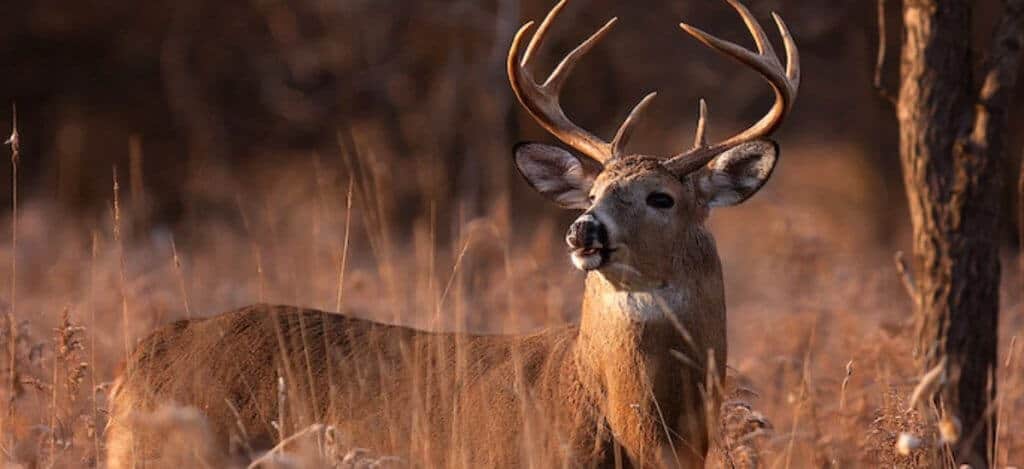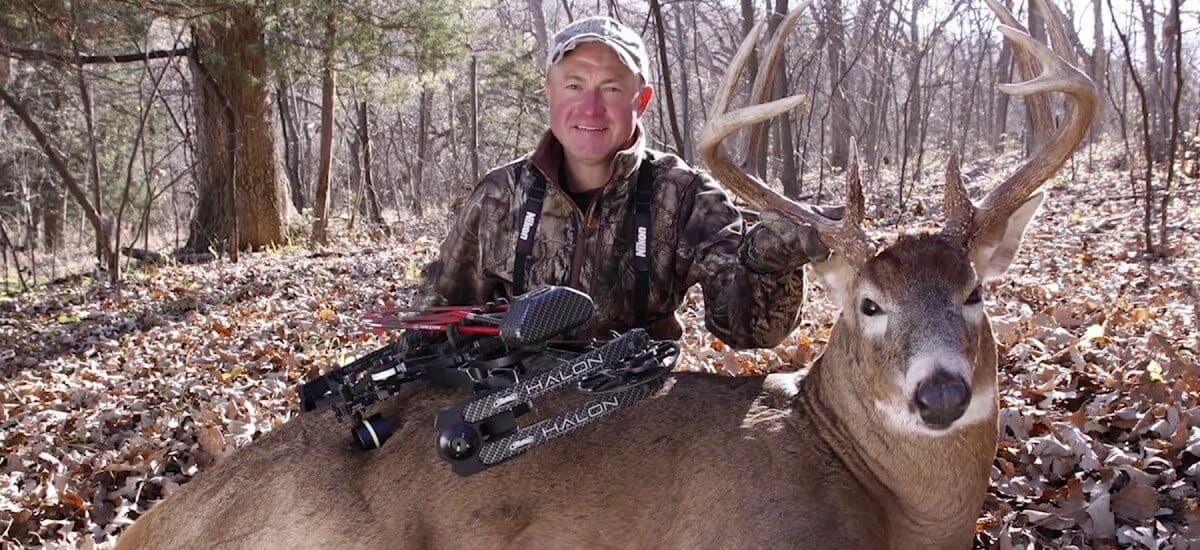In the good ol’ days, our grandparents never needed much deer hunting scent control before venturing into the wild. With their famous Savage 99 rifles, they’ll return almost every time with a kill for dinner. But these days, many hunters swear by their best deer cover scents and rituals and can’t seem to do much without them.
Ok, let’s say you are not moved by the modern deer hunting trend and decide to go the old grandpa’s way. Will you be able to beat the deer in the battle of scent? The short answer is: No, you can’t!
Our grandparents didn’t use the very advanced body care treatments like we do today. Our body washes and laundry detergents give us away easily to the deer’s senses. This doesn’t imply grandpa and his wife didn’t wash and clean. They did; they didn’t just use heavy perfumes to mask odors!
A recent study shows that a buck can tell you are heading towards its direction from a mile away, given its sophisticated olfactory senses. This is where the scent control for deer hunting comes in.
Now, before you give up on your quest for tagging a 10-point trophy buck, this article uncovers all you need to know about scent control hunting to help you see more deer. Let’s begin.
Hunting and Deer’s Incredible Sense of Smell

Deer hunting in North America has evolved over the years. Hunters are now more equipped than ever. Modern hunting features the use of brute rifles, including Remington 7600 and Marlin 1895. These are usually coupled with the best vortex scopes for precision shooting. However, this does not always guarantee a kill, given the deer’s sense of smell.
The deer’s most dependable defense tool is its sense of smell. With 297 million receptors, you can tell the deer’s nose is no child’s play. Studies reveal that these animals can smell 1,000 times better than us!
The deer’s olfactory system can decode the wind’s organic compounds and relay the information to its brain, giving it a decisive advantage in its environment. The deer possesses dedicated receptor cells to detect distinct odors. This implies there are cells with the primary function of detecting human deodorants while there are others for gasoline, acorns, other deer, and the list goes on and on.
When an odor hits the receptor cells, they trigger a part of the deer’s brain resulting in a pattern of behavior. The question is, how does this relate to the hunters and deer hunting? Hunting pressure causes or registers a pattern of behavior in the deer’s brain. Consequently, when a human scent hits the receptor cells, the “run for your life” pattern is triggered, and then the deer flees.
If you don’t play the wind game right, your hunting gear, such as the best rifle, clothing, calls, and long range rifle scopes, will be of no use when hunting a deer.
Controlling Human Scent
Controlling human scent when hunting deer is as crucial as the hunt itself. Here are a handful of things to consider to keep the scents in check.
Personal Hygiene
Chemists and wildlife researchers define scents as Volatile Organic Compounds (VOCs). A recent study reveals that humans release an estimated 1,800 distinct VOCs. These scents spook deer, and conventional personal care products don’t help matters.
Luckily, there are a plethora of body care products that help hunters get around human VOCs. You’d want to shower with scent-free soaps before venturing into the wild.
Paying Attention to the Food
Understandably, you should have things to eat in your stand, given that you may be hunting all day. However, you’d want to be cautious with what you eat if you must have more deer coming your way. Coffee, green, and black tea are natural diuretics you should avoid when hunting. These foods can cause you to defecate or urinate more than usual. It’s the deer we are talking about; after all, human waste is more than enough to alert the animal to your presence. Also, effective scent control for deer hunting is associated with eating non-odoriferous foods that can leave scents behind.
Campfire Smoke
It is common for hunters to wear their hunting clothes around campfire smoke to make them smell more like burnt woods, which is often found in the deer’s environment. However, this deer cover scent technique should be done after examining the home of the deer you are chasing. If there have been wood-burning activities prior to the time you are hunting, then the deer could have picked up the scent and associate it with other natural scents in the area. If not, then campfire smoke could tip off the deer about your entry, and it’ll make a run for it. So the best idea is to keep your hunting clothes away from smoke.
Chewing Gums, Smoking, and when nature calls
It is needless to mention that chewing gums, vaping, and smoking give unnatural scents into the deer’s habitat. One thing to note is even after such activities; they leave residual odors on your body that could take hours to disappear. You can use a scent-eliminating toothpaste or spray after doing any of those.
You can avoid smoking, vaping, or chewing gum but not when nature calls. Plastic bottles with lids that screw down completely are ideal for collecting urine while in the woods. If defecating becomes a necessity, be sure to walk a few hundred yards away from the main hunting area with your scentless spray handy after you do your thing.
Hunting Clothes
For starters, ensure you are using the right clothes for hunting. From the list of best deer hunting scent control tips, having unscented clothing is one you can’t do without.
Deodorize and wash those hunting clothes with scent-free detergents. Good for hunters, there is a booming market dedicated to odorless washing products. Use baking soda to get rid of residual odors from the washing machine before washing your clothes.
It’s best to hang-dry your hunting clothes outside after washing. Neatly fold your clothes in sealable plastic bags or Rubbermaid containers with scent wafers inside. Do not store your clothes with other clothes! Wear rubber gloves handling and transporting your clothes to avoid transferring scents from your hands. Store your clothes inside-out in a dark area to avoid discoloration.
Scent Elimination
Products that help hunters stay scent-free while in the woods are now available more than ever. Thanks to their manufacturers, these products are on offer at affordable prices. To make your scent control hunting even stealthier, spray yourself liberally with an odor-eliminating spray when you have your hunting clothes on, just before heading out. These sprays can eliminate any odor building up on your items of clothing. Also, spray your rubber boots as there may be odor-causing bacteria on them.
Cover Scents
As stated earlier, deer have dedicated receptor cells for every scent in their neighborhood. With that in mind, choosing the appropriate deer cover scent becomes crucial. The best cover scent for a particular area may not be right for the next. Here is why: If your preferred deer cover scent doesn’t occur naturally in your hunting area, it’ll pose a danger to the deer. Hence the best cover scent for deer hunting is one that already exists in the hunting area. The more a deer is familiar with a scent cover, the less it can tell there’s an intruder in its habitat.
Preparing Your Hunting Stand
Suppose you intend to hunt from a stand or blind. In that case, you should set up your stand at least 4-5 weeks before your hunting starts. This helps by allowing your hunting stand to absorb the natural scents of the area while getting rid of some of the implicating odor from its build materials. Also see the best cheap rifle scope for deer hunting.
Keep Wind in Mind

Many rookie hunters are always tempted to forget the wind and focus only on filling a deer tag. In most cases, they return without much success because the wind is associated with the deer’s ultimate defense mechanism, its olfactory system. Humans literally stink to the deer, given the huge number of Volatile Organic Compounds VOCs we give up. Once they smell the tiniest human odor, their brains tell them one thing: run.
Luckily, the deer can’t get a smell of you unless the wind brings your odor to its very efficient nose. Turning this to your advantage implies playing the wind. Your goal is to know the direction the wind is blowing and beat the deer by staying downwind. Knowing the wind direction and thermal air patterns can help you deduce deer’s movements and how best to intercept them.
Final Words
There you have it, tested and trusted scent control tips to help you see more deer. Working your way around the deer’s formidable nose is no easy feat. While it could be challenging to beat its smell senses completely, the techniques and deer hunting scent control tips above can increase your odds to a large extent. Remember, the satisfaction you get out of a hunting trip is a function of the effort you put into it. Investing ample time and energy to prepare for hunting brings about confidence, and confidence implies success. Happy hunting.
Mike Fellon is an experienced firearms enthusiast and optics expert. He delivers unbiased and detailed rifle scope reviews. Born and raised in Dallas, Texas. He inherited his hunting passions after his father John – he was fascinated by his stories, hearing how much attention, focus, dedication and patience he invested in shooting every animal. When he was old enough, his father first allowed him to shoot some cans and bottles with his shotgun, and then took him hunting – it was love at first sight. Mike has never stopped shooting ever since.

